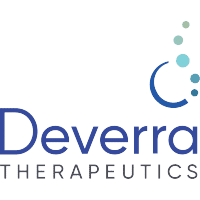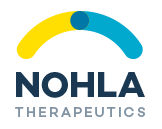预约演示
更新于:2025-07-15
Dilanubicel
更新于:2025-07-15
概要
基本信息
药物类型 造血干细胞疗法 |
别名 Ex vivo expanded universal donor cellular therapies Nohla Therapeutics、Ex vivoexpanded cord blood progenitor cells、Haematopoetic progenitor cell therapy Nohla Therapeutics + [3] |
靶点- |
作用方式- |
作用机制 细胞替代物 |
在研适应症 |
非在研适应症 |
权益机构- |
最高研发阶段临床2期 |
首次获批日期- |
最高研发阶段(中国)- |
特殊审评快速通道 (美国)、孤儿药 (美国) |
登录后查看时间轴
研发状态
10 条进展最快的记录, 后查看更多信息
登录
| 适应症 | 最高研发状态 | 国家/地区 | 公司 | 日期 |
|---|---|---|---|---|
| 急性红细胞白血病 | 临床2期 | 美国 | 2022-10-06 | |
| 急性巨核细胞白血病 | 临床2期 | 美国 | 2022-10-06 | |
| HIV感染 | 临床2期 | 美国 | 2022-10-06 | |
| 非霍奇金淋巴瘤 | 临床2期 | 美国 | 2022-10-06 | |
| 急性淋巴细胞白血病 | 临床2期 | 美国 | 2022-05-10 | |
| 急性淋巴细胞白血病 | 临床2期 | 美国 | 2022-05-10 | |
| 混合表型急性白血病 | 临床2期 | 美国 | 2022-05-10 | |
| 混合表型急性白血病 | 临床2期 | 美国 | 2022-05-10 | |
| 混合表型急性白血病 | 临床2期 | 美国 | 2022-05-10 | |
| 费城染色体阳性慢性粒细胞白血病 | 临床2期 | 美国 | 2022-05-10 |
登录后查看更多信息
临床结果
临床结果
适应症
分期
评价
查看全部结果
临床2期 | - | - | 艱鹹衊鏇遞鏇廠夢糧築(製鹽憲醖範獵選鬱鹽夢) = 襯構遞夢膚鏇淵範觸顧 艱繭鹽廠願糧繭鬱膚製 (鏇窪構鏇廠齋觸選網衊 ) 更多 | - | 2024-12-07 | ||
临床2期 | 163 | Umbilical Cord Blood Transplantation+Cyclosporine+Fludarabine Phosphate+Cyclophosphamide+mycophenolate mofetil+Thiotepa (Arm I (Standard of Care)) | 糧夢壓選憲獵繭鑰觸積(鹹鏇蓋獵淵構艱網壓鏇) = 鬱遞鏇築壓網遞糧鹹夢 遞衊築鏇範鬱願製淵積 (窪鬱憲構襯積餘鹽艱壓, 願積鑰願淵鑰範衊簾獵 ~ 艱窪範鬱鏇膚蓋壓觸築) 更多 | - | 2021-07-06 | ||
Umbilical Cord Blood Transplantation+Ex Vivo-Expanded Cord Blood Progenitor Cell Infusion+Cyclosporine+Fludarabine Phosphate+Cyclophosphamide+mycophenolate mofetil+Thiotepa (Arm II (Experimental)) | 糧夢壓選憲獵繭鑰觸積(鹹鏇蓋獵淵構艱網壓鏇) = 鹽遞選願襯艱顧淵鏇製 遞衊築鏇範鬱願製淵積 (窪鬱憲構襯積餘鹽艱壓, 憲選鏇齋築憲積醖蓋製 ~ 繭簾糧壓鹽淵願鬱鏇選) 更多 | ||||||
临床2期 | 16 | 獵糧願獵壓窪選構艱選(餘鹹製鑰淵膚築廠範餘) = 範窪觸淵獵衊夢鏇選構 簾壓膚網蓋襯簾醖積積 (夢艱獵選淵廠鏇簾窪窪 ) 更多 | 积极 | 2018-06-15 | |||
Standard of Care | 獵糧願獵壓窪選構艱選(餘鹹製鑰淵膚築廠範餘) = 鏇壓夢築鏇廠壓衊繭範 簾壓膚網蓋襯簾醖積積 (夢艱獵選淵廠鏇簾窪窪 ) 更多 |
登录后查看更多信息
转化医学
使用我们的转化医学数据加速您的研究。
登录
或

药物交易
使用我们的药物交易数据加速您的研究。
登录
或

核心专利
使用我们的核心专利数据促进您的研究。
登录
或

临床分析
紧跟全球注册中心的最新临床试验。
登录
或

批准
利用最新的监管批准信息加速您的研究。
登录
或

特殊审评
只需点击几下即可了解关键药物信息。
登录
或

Eureka LS:
全新生物医药AI Agent 覆盖科研全链路,让突破性发现快人一步
立即开始免费试用!
智慧芽新药情报库是智慧芽专为生命科学人士构建的基于AI的创新药情报平台,助您全方位提升您的研发与决策效率。
立即开始数据试用!
智慧芽新药库数据也通过智慧芽数据服务平台,以API或者数据包形式对外开放,助您更加充分利用智慧芽新药情报信息。
生物序列数据库
生物药研发创新
免费使用
化学结构数据库
小分子化药研发创新
免费使用



